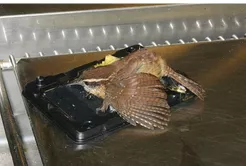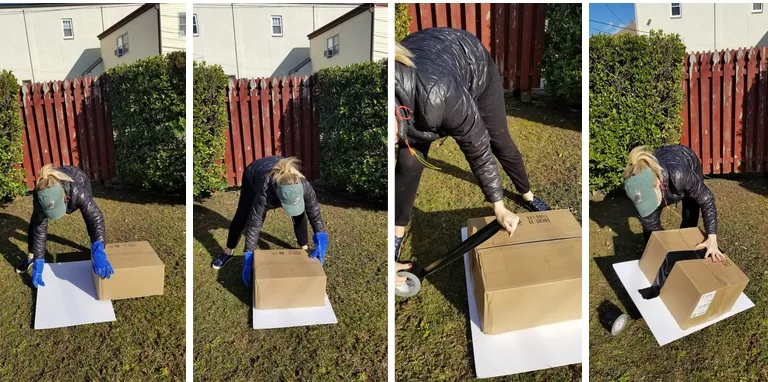By Carol Armstrong, Sierra Club Southeast Pennsylvania volunteer leader, Member of Sierra Club State-wide Zero Waste Team, Penn State University Extension Master Watershed Steward, Friends of Heinz Refuge Board Secretary
As part of the Charleston Township Environmental Advisory Council’s (EAC) Community Outreach and Education program, in November 2023 we invited Michele Wellard of the Philadelphia Metro Wildlife Center (the Center), a rescue, rehabilitation, and education facility. Michele, a Pennsylvania State Licensed Wildlife Rehabilitator, brought a raven and a screech owl to help explain how many animals are orphaned each year, often due to habitat destruction, collisions, and accidents. She told us how the Center provides healing and a temporary refuge until the animals are well enough to be released into the wild. Often the animals are returned to the locations where they were found, and “rehoming” an animal is in its best interests.
Michele emphasized how important it is for us to coexist with wildlife and to care for them, just as we would step up to help an injured human, and educated the audience about how to interact with wild creatures. The Center takes in many of the species around us, excluding domestic pets, bears, and injured deer, but they do take in orphaned fawns, woods mammals (such as opossums, raccoons, foxes, skunks, rabbits, squirrels), turtles and other reptiles and amphibians, and birds (such as raptors, songbirds, pigeons/doves, and both terrestrial and water fowl).

Photo courtesy of Philadelphia Metro Wildlife Center
What We Can Do:
Eliminate rodenticides: Michele explained that use of rodent poison carries a risk of bird and mammal poisoning, as many will eat carcasses, and though vultures and other mammals eat animal remains, they do not prefer rotting food, but often eat it due to lack of wildlands and wildlife corridors and food supplies. Also, poisons in the environment affect birds’ reflexes and response times, which can cause them to be hit by a car when they would ordinarily be able to evade vehicles.
Other things that humans can do to prevent injuries are securing trash, bringing in soccer nets at night, properly disposing of fishing line to prevent entanglements, and not speeding when driving. Avoid the use of glue paper and traps, which also trap unintended animals.

Photo courtesy of Philadelphia Metro Wildlife Center
Something we don’t think of is to check the stump and branches for nests or dens of baby birds and mammals when a tree is cut down, and to check the pouch of a dead opossum for possible infants.
The Center recommends not feeding wildlife because it creates dependency, and instead supporting or re-creating natural habitats in our yards, and turning lawns into wildlife gardens, meadows, or woodlands. A good wildlife habitat contains native plants, no insecticides, year-round source of water, and nesting or roosting boxes. Use bird feeders wisely and responsibly. If hunting, dispose of gut piles and use alternatives to lead ammunition, as lead poisons the wildlife, such as eagles, that feed on the remaining carcass. If you find an animal that seems orphaned or hurt, call the Center first before bringing it in.
Here is a safe and cautious method to secure an animal.
Safety and Caution: Box-over method – Box on top, slide cardboard underneath, tape down to transport to a wildlife rehaber.

Photo courtesy of Philadelphia Metro Wildlife Center.
Interactions between humans and wildlife can create memorable experiences. It is up to us to make choices keeping in mind our wild neighbors. Protect and preserve wildlife and allow them to live free of human interference. Enjoy wildlife outside in their natural habitats! The Center takes both volunteers and donations of various types. The Philadelphia Metro Wildlife Center is in Worcester Township, and can be reached at 267-416-9453; it is necessary to call before bringing an animal in.
This blog was included as part of the March 2024 Sylvanian newsletter. Please click here to check out more articles from this edition!